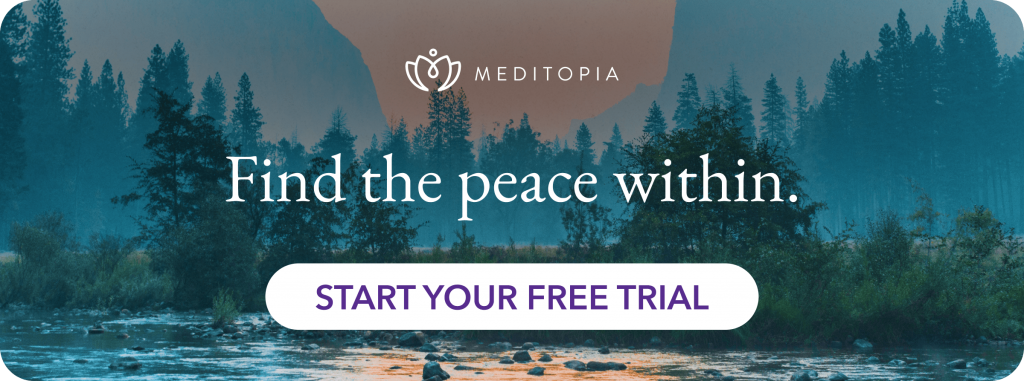What Are Your Inner Resources & How to Activate Them


Table of contents
Have you wondered what are your inner resources? You may struggle to see them sometimes, but we all have inner strengths and resources that we can use to navigate life and work with more confidence.
Positive Psychology research findings demonstrate that you are happiest in your career when utilizing your signature strengths. You can understand them as the positive parts of your personality that make you feel authentic and engaged.
Keep reading to discover how to activate your inner resources from a more compassionate and mindful perspective.
What Are Your Inner Resources?
Inner resources refer to the personal qualities, strengths, and capabilities that individuals possess within themselves. These resources play a crucial role in helping people navigate life’s challenges, cope with stress, and achieve personal growth and well-being. Inner resources can manifest in various aspects of a person’s life, encompassing emotional, psychological, and social dimensions. Here are some examples of inner resources:
- Resilience: The ability to bounce back from setbacks, adapt to change, and endure challenges with a positive outlook.
- Self-awareness: Understanding one’s thoughts, feelings, and behaviors. It enables individuals to make informed decisions and manage their reactions effectively.
- Self-esteem: A positive evaluation of one’s own worth and abilities, contributing to a sense of confidence and self-worth.
- Emotional intelligence: The capacity to recognize, understand, and manage one’s own emotions, as well as effectively navigate social interactions.
- Mindfulness: Being present in the moment and maintaining an awareness of one’s thoughts and feelings without judgment, which can enhance overall well-being.
- Adaptability: The ability to adjust to new situations, learn from experiences, and embrace change.
- Optimism: A positive outlook on life and the expectation that favorable outcomes are possible, even in challenging circumstances.
- Courage: The willingness to face fears, take risks, and confront difficulties, demonstrating strength in the face of adversity.
- Intrinsic motivation: Engaging in activities for personal fulfillment and satisfaction rather than external rewards, fostering a sense of purpose.
- Problem-solving skills: The ability to analyze situations, generate effective solutions, and make sound decisions to address challenges.
Cultivating and strengthening these inner resources can contribute significantly to an individual’s mental and emotional well-being. Additionally, these qualities often play a role in how people approach and overcome various life situations, fostering personal growth and resilience.

Benefits of activating your inner resources
Sometimes in our lives, we feel discouraged, unable to succeed, or overwhelmed by the daily challenges. Research shows that, during such times, discovering and applying your strengths mindfully could be a good starting point to:
- Boost confidence
- Increase happiness
- Strengthen relationships
- Manage problems
- Reduce stress
- Accomplish goals
- Build meaning and purpose to improve work performance
Learning to use your capabilities
It is not enough to be aware of your talents. You also need to understand your capabilities’ potential and learn to use them in different contexts of your life. When you manage to mix these processes, you can evoke feelings of competence and win against that famous impostor syndrome.

Among the benefits of highlighting and using your strengths are the following:
- Generating optimism, especially when we look at life from a pessimistic and narrow perspective.
- It may also provide a sense of direction when we are in the grey zone trying to decide something important.
- Develop self-confidence and makes it easier to battle against self-criticizing thoughts, and generate a sense of vitality (Clifton & Anderson, 2001)
Why are you struggling with identifying your strengths?
Perhaps you didn’t have people supporting your successes as a child. Maybe you felt overwhelmed around people who seem to succeed in life more quickly than you. The goal here is to understand that not everyone can do what you do, even though your mind sometimes gets so fixated on it.
Organizing a work after-party, for example. It may be effortless for some, but for others, it could feel like hiking Mount Everest. There are so many unnoticed skills behind this apparently simple task. Are you aware of them? Would you feel confident you could do it? Whatever your answer is, you may want to ask yourself why to help you bring out your own visible and not visible capabilities.

The second reason you may have issues bringing your capabilities to the surface is confusing humbleness with underestimation.
You were probably taught since childhood that being humble is imperative. But what these people in your life referred to, most likely, was that being arrogant is a negative personality trait, and somewhere on the road, you adopted underestimation instead of humbleness.
If you are a perfectionist facing a lot of self-critical thoughts, switching to a self-compassionate mindset may support you in building confidence objectively. Self-compassion is the capacity to approach one’s failures and sufferings with the kindness and love you approach others.
Dr. Kristin Neff from Texas University has defined three main elements of self-compassion: self-kindness, common humanity, and mindfulness. Would you like to incorporate them into your life?

What are the strengths that support you and make you authentic?
Let’s do a short exercise. When was the last time you solved a problem or helped someone do so? What did they appreciate from you?
Don’t take your strengths and talents for granted. For example, fixing a bike reflexes your problem-solving skills (at work and in life). Having the empathy to listen and offer loving advice can be perceived as easy for you, and even if it comes out naturally, why do you insist on diminishing this trait?
According to Hill, 2000, top achievers fully develop their talents into strengths and invent ways to apply their strengths to their everyday tasks. What are you doing today to turn a skill into a strength?
Make a list of things you do right, or something that comes naturally from you. Positive things people have said about you in the past can give you hints of these traits. Like being a good listener, approaching problems with an optimistic mindset, or being creative when problems arise.

Nothing can dim the light which shines from within you. Feel inspired to identify your talents and strengths yet?
Steps to discover your strengths and use them to your advantage consciously
- Take a strengths assessment that helps you recognize your strengths, skills, abilities, and things you’re good at. These tests are one of the most common and professionally accepted strengths finders.
- Find what makes you feel strong. Think of a time when you felt in the dark. What helped you get up?
- Find what you spend your time and focus on, what you really enjoy doing. Losing track of time and place might give you a clue about what you’re really good at?
- Ask your relatives what you loved as a child. Which games did you play? They can give hints about how social and analytical you always have been.
- Remember what you have been thanked for, especially during difficult times. Were you helpful, empathetic, or really calm in a crisis situation?
- Identify your talents and upgrade them so that you can transfer them to daily life. The research found that when people can recognize what they are good at, it helps them accomplish new or complex goals.
- Make a list and choose at least one of the above activities to take action with to reach your current goals fluently.

No matter what kind of challenges, difficulties, or painful situations you go through in your life. We all have something deep within us that we can reach down and find the inner strength to get through them. The strength-based approach allows people to see themselves at their best to see their value. It then allows a person to move that value forward and capitalize on their strengths while fulfilling their authenticity. Two things that will help them thrive in this volatile and competitive world.
